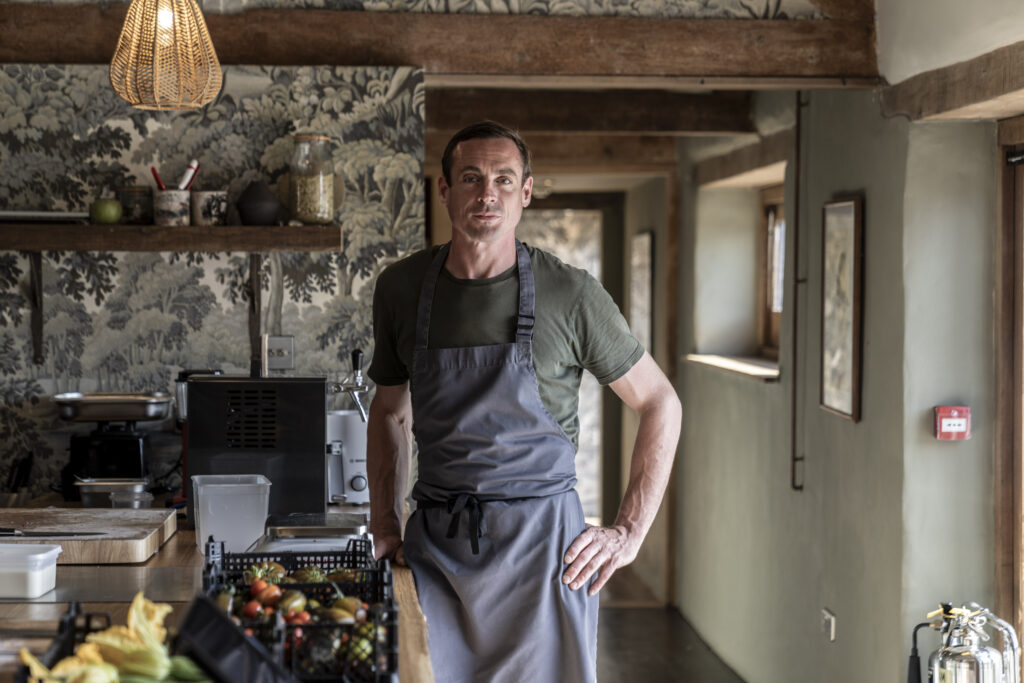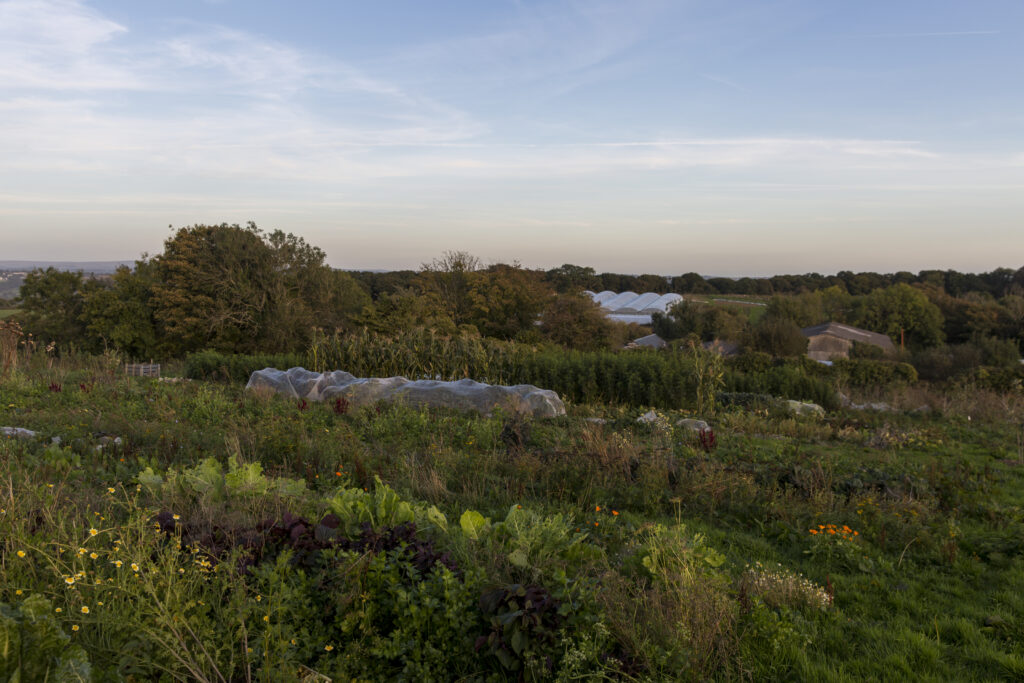Photo left: Chris Terry; right: Rebecca Dickson
Dan Cox
Crocadon, Saltash, United Kingdom
Dan, former chef at L’Enclume, pursued his dream of running a farm-to-table restaurant. He built Crocadon, a 120-acre organic farm, supplying a large amount of the restaurant’s produce. You originally wanted to grow everything yourself. How has that evolved over time?
-The idea was to do it all ourselves, and after six years, we technically can—but we’ve realized the importance of working within a community. Being a commercial grower teaches you a lot about the challenges farmers face. Now, we source what we don’t produce from others who share our mindset and ethos. Even if you have big aspirations to be fully self-sufficient, collaborating with neighbors and ensuring you all survive together is far more fulfilling.
How do you approach food waste and soil health on the farm?
Food waste for us is very different from in London, where the best option is collection by waste companies. Here, if you’re growing vegetables, you’re extracting nutrients from the soil—so you have to give back. When we harvest cabbage, for example, we take the inner leaves for the kitchen, while the outer greens go back into the soil. Composting is essential. We we even grow crops specifically to nourish the soil. The soil needs to digest, just like we do.
How do you balance running both a farm and a restaurant?
-The whole team is involved in farming. Théo, our pastry and baker, helps out when the lambs are birthing. We have a full-time grower, but we all take part in harvesting. I’ve always believed in giving people the freedom to be creative, so staff can also explore other areas, like working with ceramics. Restaurants will never be perfect—there are long days—but we try to keep things sustainable by offering just one service per day, keeping it focused and efficient.
What are the biggest sustainability challenges, especially with energy?
-Electricity is one of the hardest challenges. We explored solar panels, but it’s like compostable vacuum bags—people assume they’re better, but the energy required to produce them often makes them worse. Through research, I found solar still isn’t truly sustainable due to battery storage and production costs. Without water for hydroelectric power or enough wind for turbines, we rely on electricity, which at least is increasingly renewable. For heating, we use a wood burner with timber from our own woodland.
Read the review Crocadon

